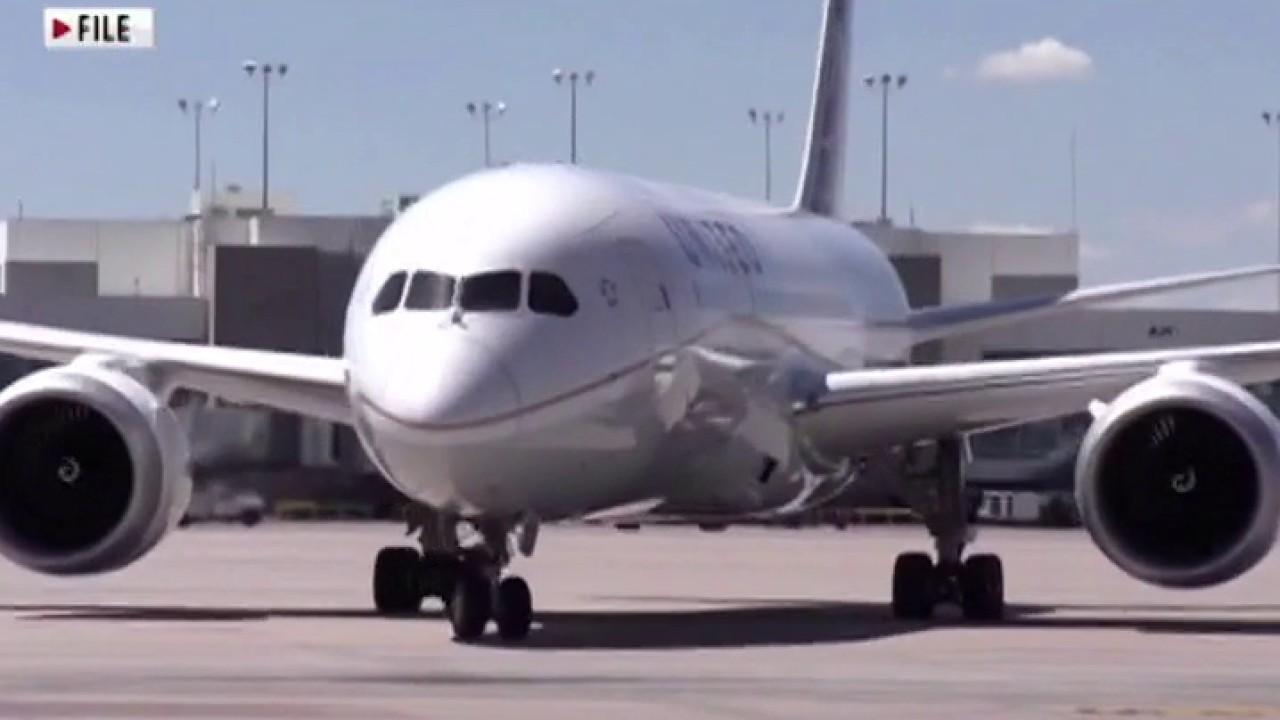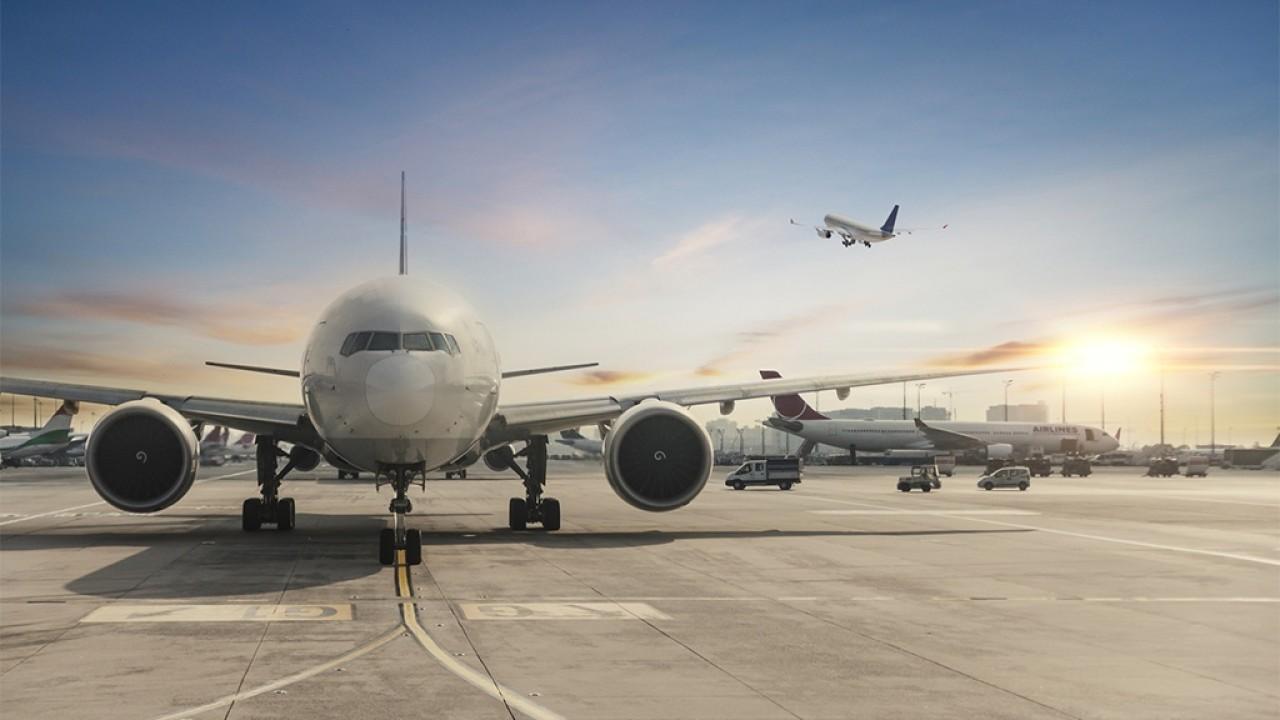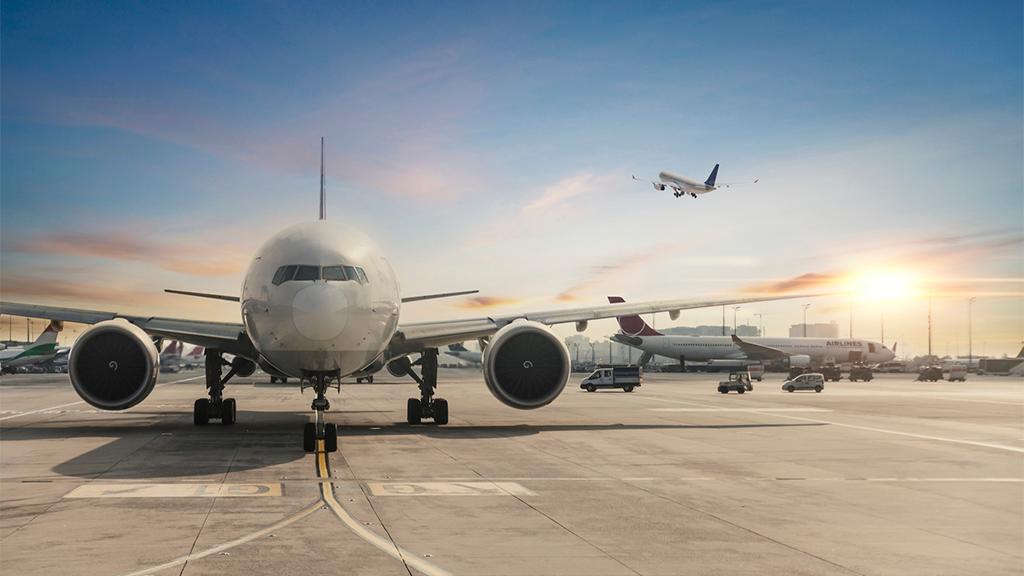Former Spirit Airlines CEO: More federal aid 'not a long-term solution' for airlines
Ben Baldanza explains the 'changed economy for travel'
Former Spirit Airlines CEO Ben Baldanza warned on Wednesday that more federal aid for airlines is “not a long-term solution” for the struggling industry.
The coronavirus pandemic has led to a sharp decrease in demand for travel as people were encouraged to stay home in an effort to curb the spread.
“I think that the government is doing a good thing with the payroll protection, but it’s not a long-term solution for fixing what the airlines really need,” the Sterling Limited Partners operating partner said.
Baldanza, an economist, made the comments on “Mornings with Maria” on Wednesday, three days after President Trump signed the massive $900 billion COVID-19 relief and $1.4 trillion government spending package.
The president's decision to sign the package — intended to blunt the continued economic fallout from the virus-induced crisis — restored unemployment benefits, added additional funding to the Small Business Administration's Paycheck Protection Program and provided more aid to the airline industry.
As part of the new package, the airline industry will receive $15 billion for passenger air carriers and $1 billion for contractors to be exclusively used for employee wages, salaries and benefits. In order to be eligible, airlines must agree to avoid furloughs or pay and benefit reductions until March 31. Airlines are also required to recall employees involuntarily furloughed between Oct. 1 and the date the airlines agree to the bill's rules.
Baldanza, who has a 35-year career in the U.S. airline industry, said he believes “the payroll protection that was just put in place was good in that it helps airlines manage their cash through potentially a tough winter season, after the holidays at least.”
Many Americans have been traveling over the holidays despite government warnings that people should stay home during the Christmas holidays to limit the spread of COVID-19.
AMERICAN AIRLINES TO FURLOUGH 19,000 WORKERS
A fresh load of infections, hospitalizations and even deaths -- on top of an already devastating year -- has prompted a new round of travel bans and lockdown measures in some states.
However, there is no blanket restriction nationwide and last Wednesday, ahead of the Christmas holiday, the Transportation Security Administration (TSA) screened more than 1.1 million passengers at airline security checkpoints nationwide, the most since March 16.
Just a few days before the peak, TSA screened over 3.2 million passengers over a three-day span, with more than 1 million filing into airports on Friday, Saturday and Sunday. It was the first time that checkpoint volume surpassed 1 million for three consecutive days since the pandemic brought travel to a near standstill in March.
| Ticker | Security | Last | Change | Change % |
|---|---|---|---|---|
| AAL | AMERICAN AIRLINES GROUP INC. | 13.35 | -0.75 | -5.32% |
| UAL | UNITED AIRLINES HOLDINGS INC. | 110.05 | -6.88 | -5.88% |
Baldanza noted on Wednesday that for airlines, including American Airlines and United Airlines, to bring back their furloughed employees, the federal aid is not enough.
“United has already said most of those employees are going to lose jobs again at the end of that four months because the airline won’t need them again so the important thing I think is not just to artificially pay employees to come work when there isn’t work to do, but for the airlines to recognize the new economy,” Baldanza explained.
He said airlines should expect less business travel and more leisure travelers. He added that airlines should focus on where it seems people want to travel to “and follow the states that are staying open” as well as “fly less to the states that aren’t open yet.”
Baldanza noted that “there are more flights to Florida right now than to New York, of course, because of the different policies in those states.”
United and American Airlines have both announced they intend to recall some 32,000 furloughed employees following the passage of the $900 billion COVID-19 relief package by Congress, which includes an extension of the Payroll Support Program.
United CEO Scott Kirby and President Brett Hart said in a memo to employees last week that the airline "intends to offer temporary employment" to more than 13,000 employees who were furloughed in October.
"The truth is, we just don't see anything in the data that shows a huge difference in bookings over the next few months,” Kirby and Hart said. “That is why we expect the recall will be temporary."
Baldanza noted on Wednesday that “this is a changed economy for travel” and “it’s unclear how much business travel is returning and it’s unclear when families and friends are going to be comfortable traveling in groups again.”
“Because of that, the most proactive airlines out there, are changing their flight schedules, thinking about how they’re going to do business in this new world,” he went on to say.
| Ticker | Security | Last | Change | Change % |
|---|---|---|---|---|
| PFE | PFIZER INC. | 26.86 | -0.49 | -1.80% |
| BNTX | BIONTECH SE | 110.42 | +2.47 | +2.29% |
| MRNA | MODERNA INC. | 49.70 | +3.10 | +6.65% |
The relief for the airline industry comes as distribution of vaccines by Pfizer and BioNTech and Moderna to the public have begun after both were greenlit by the Food and Drug Administration earlier this month.
However, United Airlines executives warned they do not expect customer demand to change much between December and the end of the first quarter of 2021, due to the fact that vaccinating the majority of the American public will still take months.
| Ticker | Security | Last | Change | Change % |
|---|---|---|---|---|
| DAL | DELTA AIR LINES INC. | 67.44 | -3.67 | -5.15% |
| LUV | SOUTHWEST AIRLINES CO. | 52.08 | -2.71 | -4.94% |
When asked which airlines he believes will come out of the pandemic the strongest, Baldanza said he believes “the airlines that are lower cost” and “don’t need as much revenue to get cash positive again because their costs are lower.”
He added that the airlines “that haven’t depended historically on carrying a lot of business travel” will rebound quicker as well.
GET FOX BUSINESS ON THE GO BY CLICKING HERE
“That’s the travel that’s most at risk of not coming back fully so airlines that have depended on that travel, and that’s the big four airlines in the U.S.: American, United, Delta and Southwest. Those airlines are going to have to figure out how they live with more leisure traffic and less business traffic on their airplanes,” Baldanza said.
“The airlines that are already comfortable with leisure traffic, and that’s basically all the airlines that aren’t the four I mentioned, they’re already good at that so I think they’re going to emerge from this stronger than the big four.”
CLICK HERE TO READ MORE ON FOX BUSINESS
Fox Business’ Megan Henney, Lucas Manfredi and Daniella Genovese contributed to this report.






















